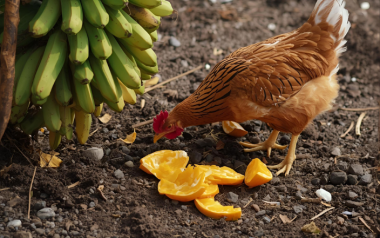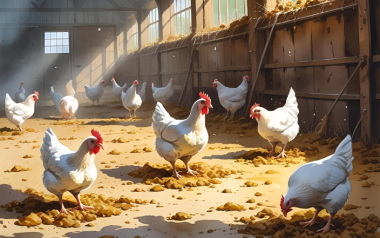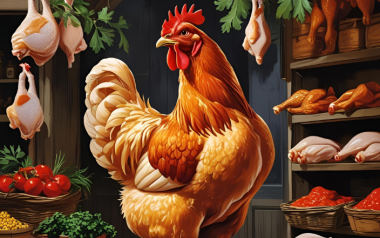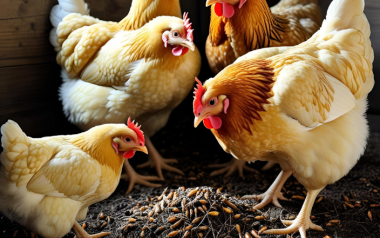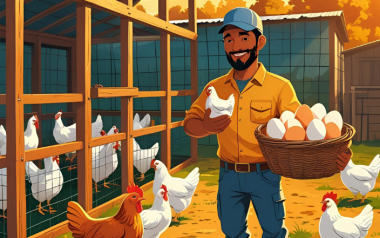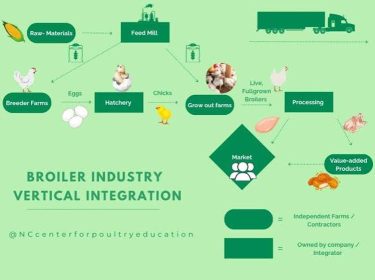
26 Mar 2025
Broiler Contract Farming: Can Integration Evolve for Mutual Success?
Broiler Contract Farming is well-established in many countries, particularly in the U.S., Brazil, India, and China.
Broiler Contract Farming
Broiler Contract Farming is well-established in many countries, particularly in the U.S., Brazil, India, and China.
United States
- Nearly 90% of broilers are grown under contract farming with integrators like Tyson Foods, Pilgrim’s Pride, and Perdue Farms.
- Integrators provide chicks, feed, veterinary support, and technical guidance, while farmers invest in infrastructure and manage daily operations.
- Payment is based on weight gain, feed efficiency, and mortality rates.
Brazil
- Leading poultry exporter with strong contract farming integration.
- Companies like BRF and JBS control production, ensuring quality for exports.
- Farmers benefit from stable prices, but power is concentrated with integrators.
Europe
- Contract broiler farming is common but more regulated, emphasizing animal welfare.
- Countries like the Netherlands and Germany have stringent environmental and welfare laws, increasing production costs.
India
- Rapidly growing contract broiler farming model with integrators like Suguna, Venky’s, and Godrej Agrovet.
- Farmers receive inputs (chicks, feed, vaccines) and earn based on weight gain.
- Challenges include power imbalance between farmers and integrators.
China
Continue after advertising.
- Large-scale contract farming with major companies like CP Group.
- Government policies support contract farming to ensure food security.

The Double-Edged Sword of Vertical Integration
Vertical integration has revolutionized the global poultry industry, creating efficient, large-scale production systems that dominate markets in the USA, Brazil, Thailand, and India. Integrators like Tyson Foods, CP Foods, BRF Suguna, IB and many other companies have built empires by controlling every aspect of broiler production—from hatcheries to processing.
But beneath this seemingly successful model, a silent conflict brews between integrators and contract farmers. As farmers struggle with low earnings, rigid contracts, and financial uncertainty, the future of vertical integration hangs in the balance. Will this model adapt and evolve, or will a new wave of independent and cooperative poultry farming disrupt the system?
A Silent War in the Poultry Industry
Broiler contract farming was supposed to be a win-win. Integrators promised stability, assured payments, and access to better technology. Farmers saw a chance to escape market risks and secure a steady income.
But behind the polished image of integration, a silent war is brewing. Farmers say they’ve become mere laborers on their own farms, locked into one-sided contracts where they take the biggest risks for the smallest rewards. Integrators, on the other hand, argue that without their investment, expertise, and market access, small farmers wouldn’t survive at all.
So, who is really benefiting? And can this system sustain itself in the long run, or are we heading toward a breaking point?
The Reality of Broiler Contract Farming: Who Holds the Power?
The Illusion of Stability
Farmers sign up because they fear market volatility—feed costs fluctuate, chicken prices crash, and disease outbreaks can wipe out entire flocks. Contract farming removes some of these risks, but at what cost?
Who really controls the business? The integrator. Who decides the payment structure? The integrator. Who takes most of the risk? The farmer.
A Business Model Where Farmers Have No Say
Farmers have no control over chick quality, feed formulation, or disease outbreaks—yet, when something goes wrong, they are often penalized.
- Poor-quality chicks? Farmer’s problem.
- Lower weight gain due to feed issues? Farmer earns less.
- Birds die from disease? Farmer absorbs the loss.
And the growing charge? A few rupees per bird, barely covering their costs. Farmers invest their land, labor, and time, yet they remain powerless.
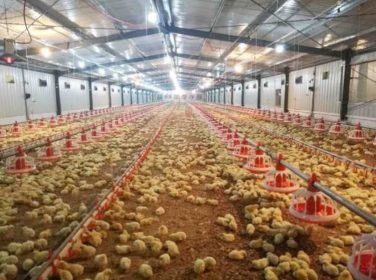
The Integrator’s Justification: “Without Us, You Wouldn’t Survive”
Integrators argue that farmers are still better off than if they raised birds independently.
- They provide a steady stream of income (even if small).
- Farmers don’t have to worry about market fluctuations.
- They supply veterinary support, advanced genetics, and bulk feed pricing.
This is partly true. But what’s the alternative? The farmer takes loans, buys chicks and feed at market rates, and risks everything on unpredictable prices.
So, is contract farming a safety net or a trap?
The Breaking Points: Why Farmers Are Protesting
India: Farmers vs. Integrators
In Tamil Nadu, Karnataka, and Maharashtra, contract farmers have staged protests against low growing charges and unfair contract terms. Some have even threatened to exit contracts entirely, arguing that they are being forced into debt despite working harder than ever.
- Growing charges have remained stagnant while production costs have risen.
- Farmers accuse integrators of manipulating input costs—higher feed prices mean lower profits for farmers but more money for integrators who control the feed supply.
- In some cases, companies delay payments, leaving farmers struggling to cover their expenses.
USA: Farmers Take Legal Action
In the U.S., Tyson Foods, Perdue, and Pilgrim’s Pride have faced multiple lawsuits over contract terms that keep farmers in perpetual debt.
One farmer in Arkansas described it best: “You start with a dream of running your own farm. Then you realize you’re just an employee with no rights, no voice, and no way out.”
Brazil: Can Co-Ops Be a Solution?
In contrast, Brazil has seen more success with cooperative broiler farming.
- Farmers share ownership in processing plants.
- They negotiate better prices as a collective force.
- Instead of fixed growing charges, farmers earn based on profits from sales.
Could this model work elsewhere?
Can Broiler Integration Survive?
If contract farming continues down its current path, something will break. Either:
- Farmers will abandon contracts – leading to a shortage of growers and production issues.
- Governments will intervene – forcing integrators to offer fairer contracts and better pricing.
- Alternative models like co-ops will rise – challenging the dominance of integrators.
So, what needs to change?
- Profit-sharing instead of fixed growing charges – Farmers should get a percentage of final profits, not just a fixed rate per bird.
- Greater contract transparency – Farmers need more control over production, including feed quality and chick selection.
- Farmer cooperatives – By banding together, farmers can negotiate better terms and even process their own birds, as seen in Brazil and parts of Europe.
If integrators refuse to adapt, they risk alienating the very farmers they depend on.
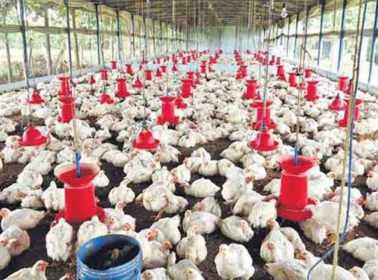
The Future of Contract Broiler Farming
- The broiler contract farming model is at a crossroads.
- Farmers are losing patience. Governments are watching closely. Consumers are starting to ask questions about fair farm practices.
- If integrators want to protect this model, they must start treating farmers as partners, not disposable laborers.
- The future of poultry integration will not be about control—but collaboration.
The question is: Will they change before it’s too late?
Sources: Available upon request








